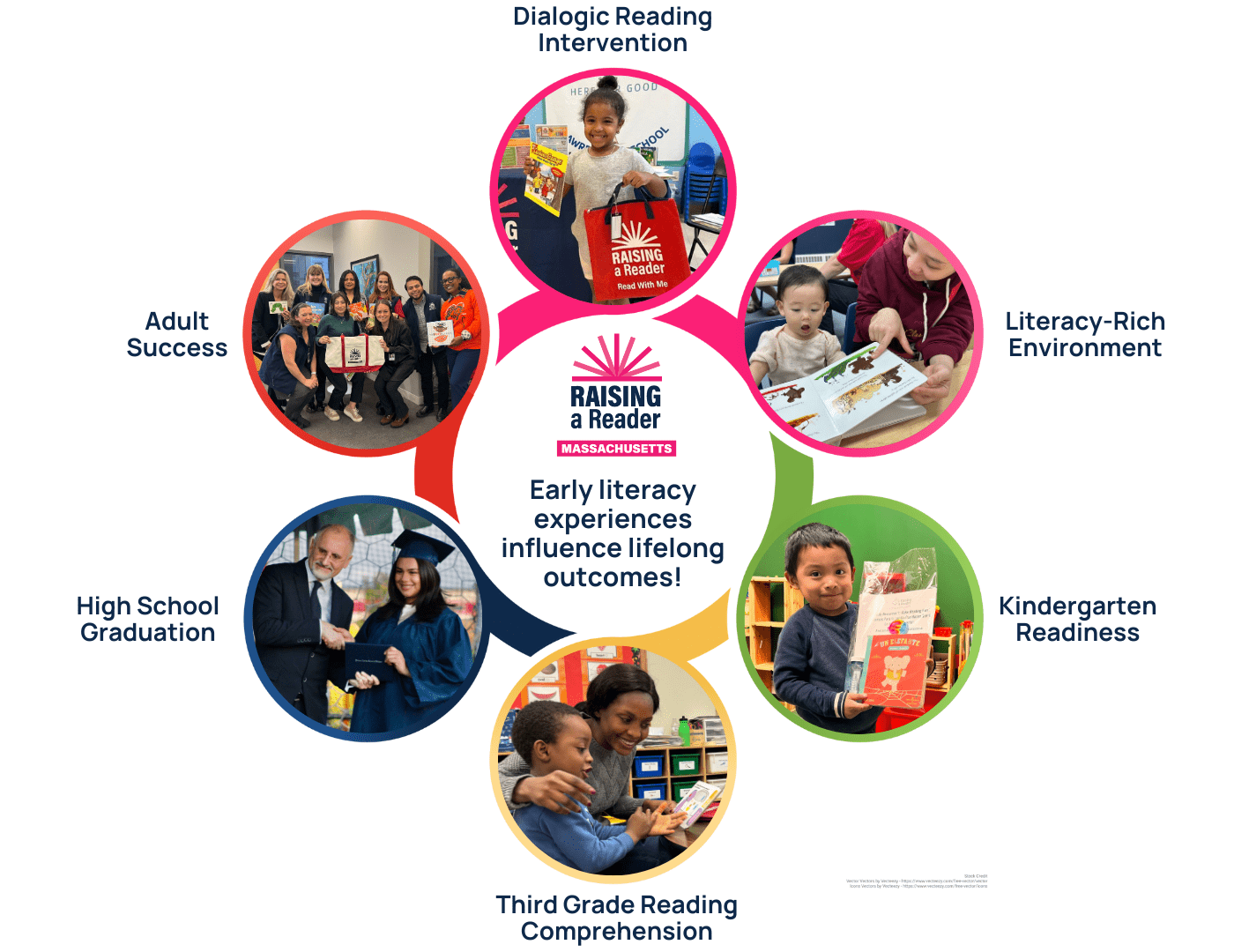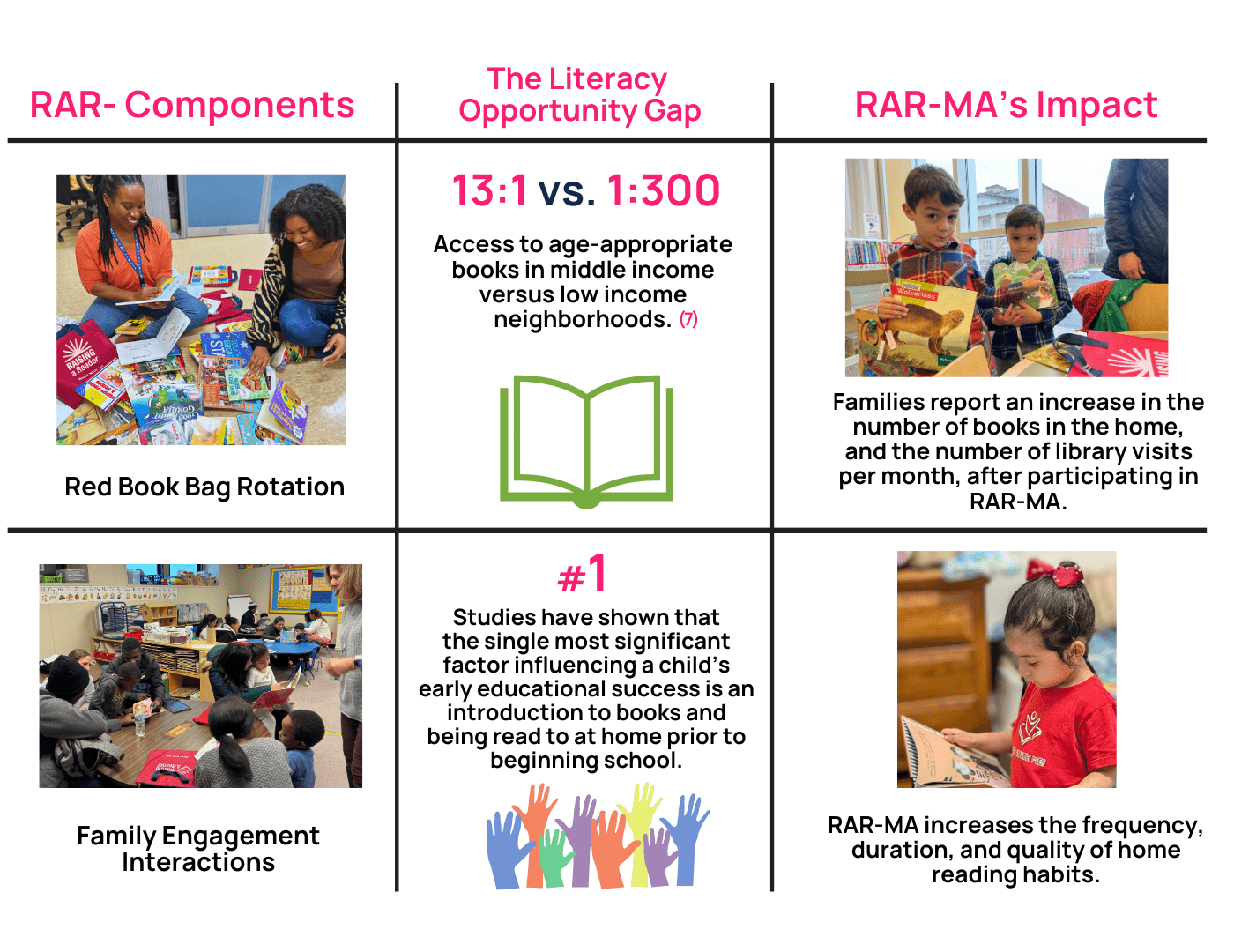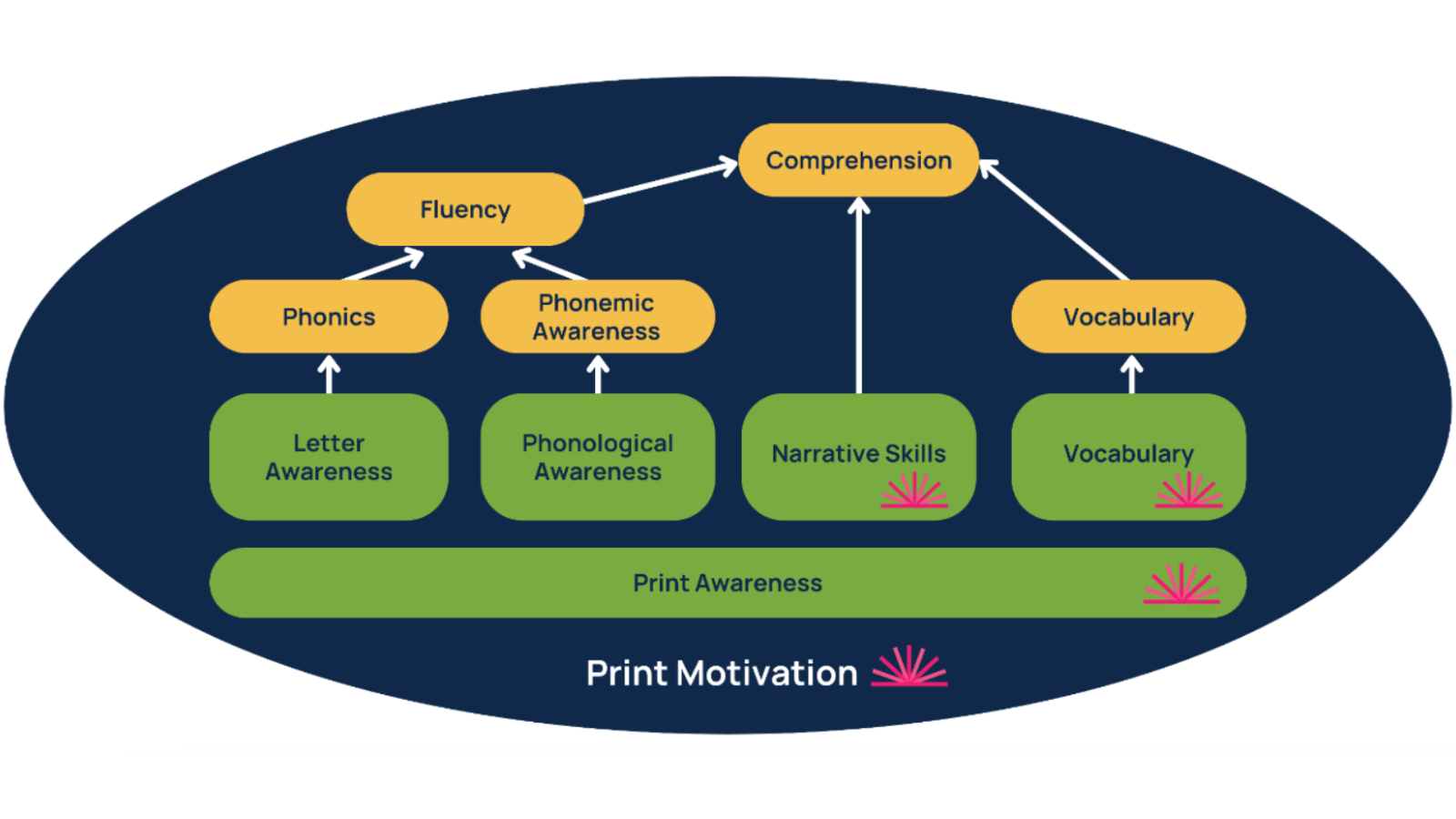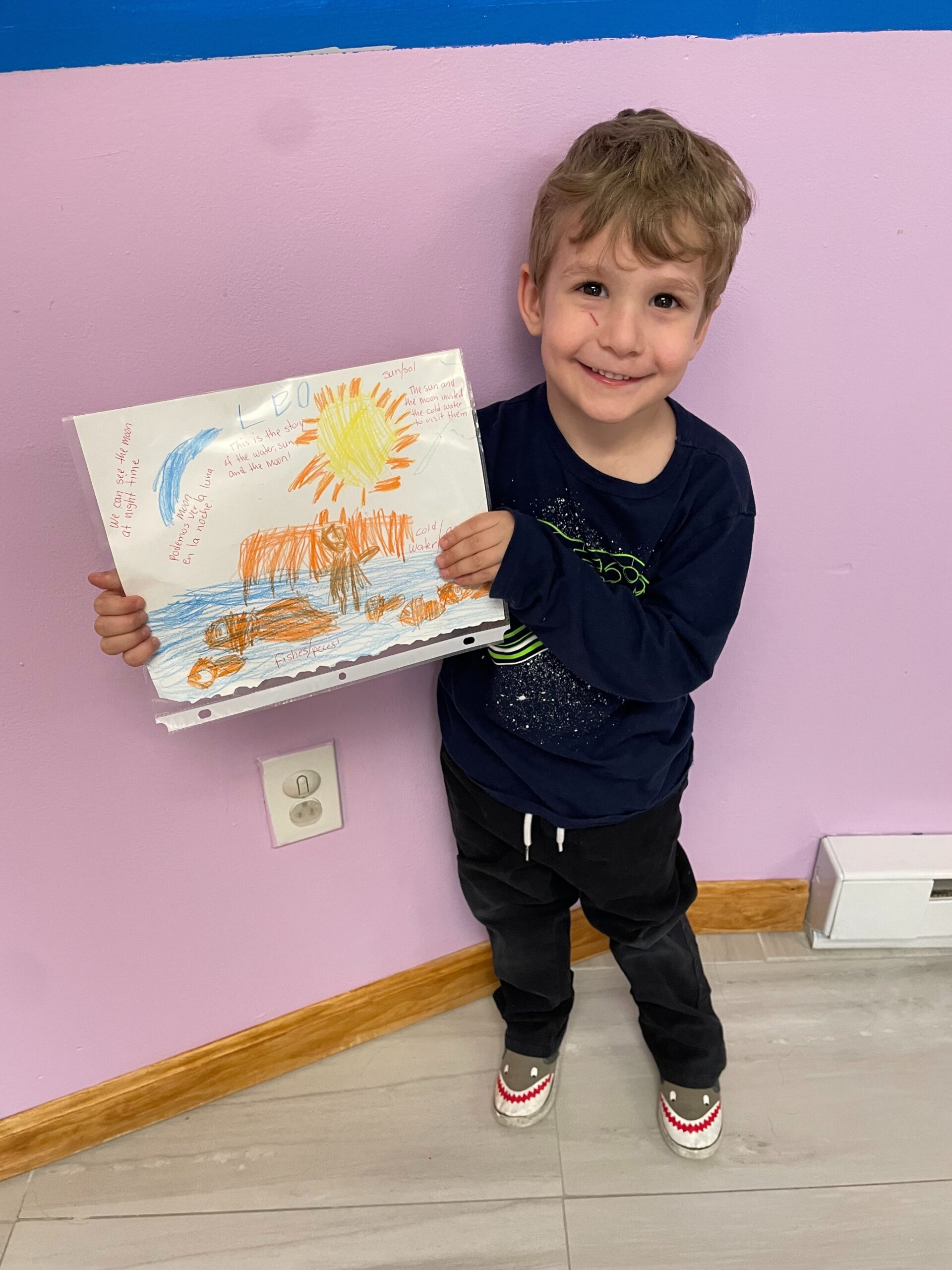

Why Raising a Reader Massachusetts?
Moving the Needle: An Evidence-Based Dual Intervention


How RAR-MA Supports Science of Reading Instructional Approaches



Participant Testimonials
Alumni Spotlight: Alexandra

Alexandra was one of RAR-MA’s earliest participants – and to this day touts the power of literacy to change lives. Hear Alexandra’s story about growing up reading at home, her early ambitions to be President of the United States, her academic successes, and her plans for the future.
Participant Spotlight: Lucas

Lucas doesn’t often express himself with words, but did use music to demonstrate that he had made a connection to his book after recognizing musical notes on the back cover. Children learn best when they are actively involved and having fun in the process. As Lucas was exercising his brain, making connections, and finding new ways of expressing his excitement by playing “Row, Row, Row Your Boat” from the sheet music, his mom engaged his interests with positive reinforcement and praise. Small, daily interactions like these add up to countless positive benefits for children, including drastically influencing their third-grade reading comprehension, high school graduation rates, and ultimately success as adults. Lucas’s mom, Virginia, shared his excitement with us and tells us that ‘they love the familiar routine of receiving books on Thursdays and reading all together as a family over the weekend. RAR books are curated to ensure that all children have the opportunity to see themselves in what they read; Virginia also shared her love of the culturally responsive books in the rotation, including books about children of different races and books in multiple languages.
Family Survey Feedback
“My daughter loved getting 2 new books each week. She learned about different cultures and looked at books with no words. She really enjoyed the board book in each of the book bags.”
“I have learned how to better encourage my daughter’s interest in books. My daughter loves when I use different voices for different characters. Participating in the RAR program has encouraged storytelling with my whole family.”
“I love the bilingual books. Our daughter is being raised bilingual (English and Spanish). I’m so grateful for RAR! I’m so impressed with this program. As a parent, it’s really refreshing to have new books. I’ve read Green Eggs and Ham a million times, it’s nice to look at something new.”
“The variety of books is so much fun, and they are always age appropriate. My child also feels a sense of pride and ownership over her reading “her” books from playgroup (which we lovingly refer to as “baby school”). She knows the red bag and its contents are her special surprise each week and she looks forward to exploring the stories and pictures with our family.”
Footnotes:
- Logan, Jessica A. R., Justice, Laura M., Yumuş, Melike, Chaparro-Moreno, & Leydi Johana. (June 2019). When children are not read to at home: The million word gap. Journal of Developmental & Behavioral Pediatrics. 40(5), 383–386. https://doi.org/10.1097/DBP.0000000000000657
- Lemke, M., Murphy, D., Soo Ping Chow, A., Spencer, H., & Zhang, A. A first look at early literacy performance in Massachusetts: Results of initial analysis based on state grantee literacy screening assessments. (Fall 2023).
- RAR-MA Analysis of data from 2024-2025 DESE School and District Profiles of its eleven core communities
- McCrindle. Understanding Generation Alpha. https://mccrindle.com.au/article/topic/generation-alpha/generation-alpha-defined/
- Bowell. Who is Generation Alpha? Understanding our future trendsetters. https://andrewbolwell.com/2024/04/23/who-is-generation-alpha-understanding-our-future-trendsetters/#:~:text=Gen%20Alpha%20will%20make%20up%2011%%20of,work%20in%20jobs%20that%20don’t%20exist%20today.&text=This%20generation%20is%20ready%20to%20embrace%20these,will%20be%20integral%20to%20their%20future%20jobs.
- ALL IN – The Adult Literacy & Learning Impact Network. (December 2023). Nationwide employer survey report.
- Neuman, S., & Celano, D. (2006). The knowledge gap: Implications of leveling the playing field for low-income and middle-income children. Reading Research Quarterly. 41(2), 176–201.
